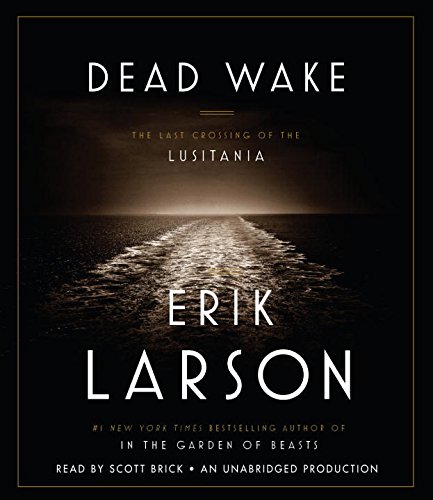
From the #1 New York Times bestselling author and master of narrative nonfiction comes the enthralling story of the sinking of the Lusitania
On May 1, 1915, with WWI entering its tenth month, a luxury ocean liner as richly appointed as an English country house sailed out of New York, bound for Liverpool, carrying a record number of children and infants. The passengers were surprisingly at ease, even though Germany had declared the seas around Britain to be a war zone. For months, German U-boats had brought terror to the North Atlantic. But the Lusitania was one of the era’s great transatlantic “Greyhounds”—the fastest liner then in service—and her captain, William Thomas Turner, placed tremendous faith in the gentlemanly strictures of warfare that for a century had kept civilian ships safe from attack.
Germany, however, was determined to change the rules of the game, and Walther Schwieger, the captain of Unterseeboot-20, was happy to oblige. Meanwhile, an ultra-secret British intelligence unit tracked Schwieger’s U-boat, but told no one. As U-20 and the Lusitania made their way toward Liverpool, an array of forces both grand and achingly small—hubris, a chance fog, a closely guarded secret, and more—all converged to produce one of the great disasters of history.
It is a story that many of us think we know but don’t, and Erik Larson tells it thrillingly, switching between hunter and hunted while painting a larger portrait of America at the height of the Progressive Era. Full of glamour and suspense, Dead Wake brings to life a cast of evocative characters, from famed Boston bookseller Charles Lauriat to pioneering female architect Theodate Pope to President Woodrow Wilson, a man lost to grief, dreading the widening war but also captivated by the prospect of new love.
Gripping and important, Dead Wake captures the sheer drama and emotional power of a disaster whose intimate details and true meaning have long been obscured by history.
An Amazon Best Book of the Month for March 2015: On May 1st, 1915 the Lusitania set sail on its final voyage. That it was sunk by a German U-boat will be news to few—and Larson’s challenge is to craft a historical narrative leading up to the thrilling, if known, conclusion, building anticipation in his readers along the way. To his credit, he makes the task look easy. Focusing on the politics of WWI, on nautical craftsmanship and strategy, and on key players in the eventual attack and sinking of the “fast, comfortable, and beloved” Lusitania, Larson once again illustrates his gift for seducing us with history and giving it a human face. Dead Wake puts readers right aboard the famous Cunard liner and keeps them turning the pages until the book’s final, breathless encounter. – Chris Schluep
